How do we live through and narrate moments of revolution and revolt, and how do we understand these experiences across time and distance? Using imaging technologies to meditate on what it means to witness from afar, Suneil Sanzgiri explores the complexities of anti-colonialism, nationalism, and diasporic identity. His work is inspired by his family’s legacy of resistance in Goa, India, an area under Portuguese occupation for over 450 years until its independence in 1961. Two Refusals (Would We Recognize Ourselves Unbroken?), the artist’s newest two-channel video installation, combines archival footage, animation, interviews, and a script written by poet Sham-e-Ali Nayeem. The film tells the stories of the mutual struggle in India and Africa against Portuguese colonialism, highlighting the solidarity that developed between the two continents during the 1960s and 1970s.
Here the Earth Grows Gold, Sanzgiri’s first solo museum exhibition, pairs the film with a 16 mm projection and new sculptural work. Modeled on bamboo structures seen across South Asia, the assemblage features family photos, 3D renderings, anti-colonial publications, and images of water and red clay soil from Goa that are drawn from his research. Together these works present the concept of diaspora as a way to reconfigure our understanding of history and belonging.
SUNEIL SANZGIRI: HERE THE EARTH GROWS GOLD
BROOKLYN MUSEUM, October 27, 2023–May 5, 2024
“Through sculpture and film, Brooklyn-based artist, researcher, and filmmaker Suneil Sanzgiri’s first solo museum show explores histories of struggle and belonging, of identities formed between continents and unconfined by nation states. The UOVO Prize winner’s exhibition, Here the Earth Grows Gold, is comprised of three new works that posit history as fluid and in a constant state of (re)formation. Poetry emerges as a form of truth or a means of accessing memories that challenges the hegemony of official historical narratives.”
- Dina A. Ramadan, The Brooklyn Rail
”Sanzgiri’s filmic representation of transoceanic defragmentation—unmoored by the structuring borders and obscurities of colonialism—orchestrates an alternative to the modalities of censorship, disappearance, and dispossession weaponized by the authoritarianism of “your history.” This antagonism of “your history” against “my memory” also resonates deeply with the continual production and consumption of colonial narratives of conquest we are witnessing today, from Goa to Gaza.”
- Jacinda Tran, Asian American Arts Alliance

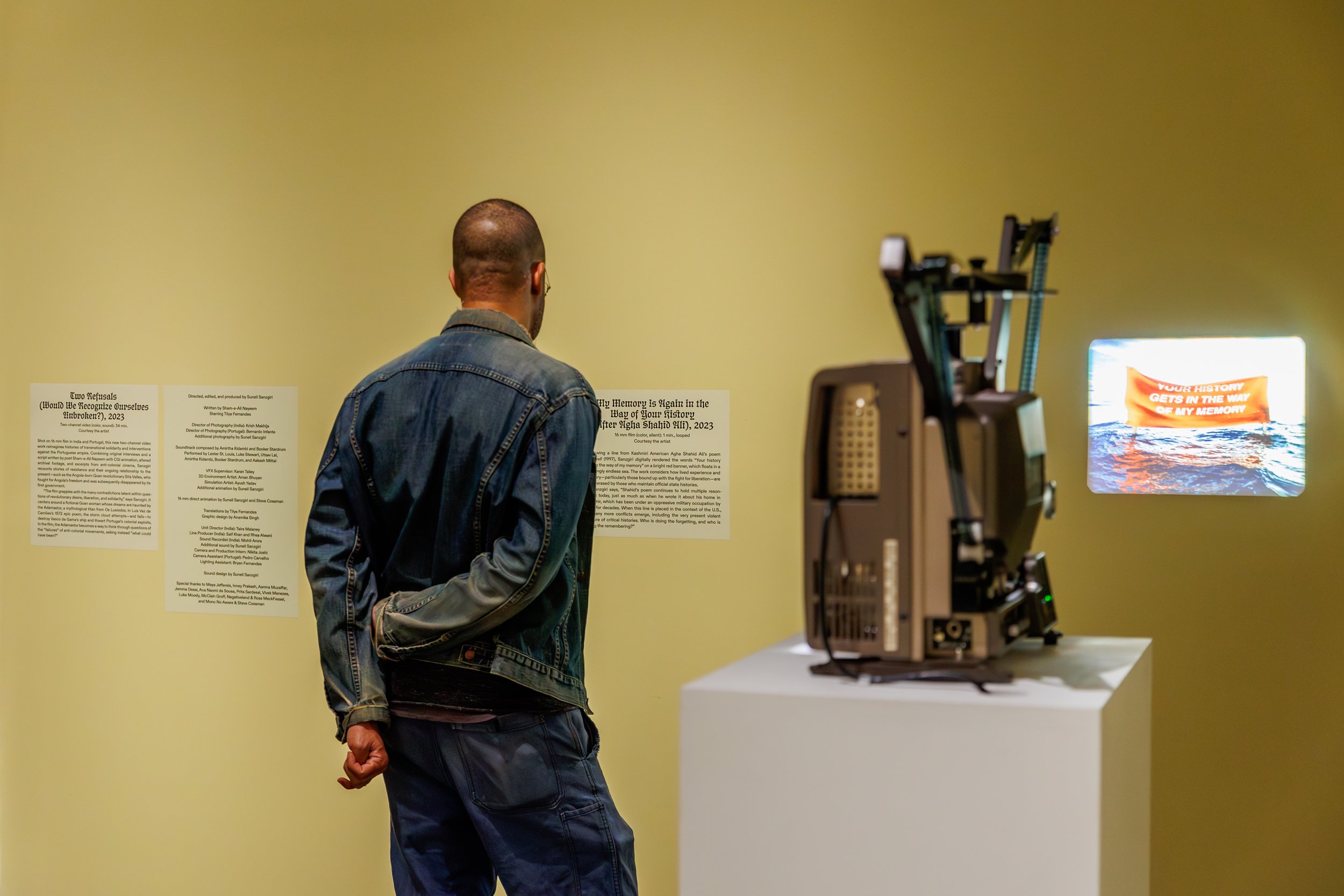
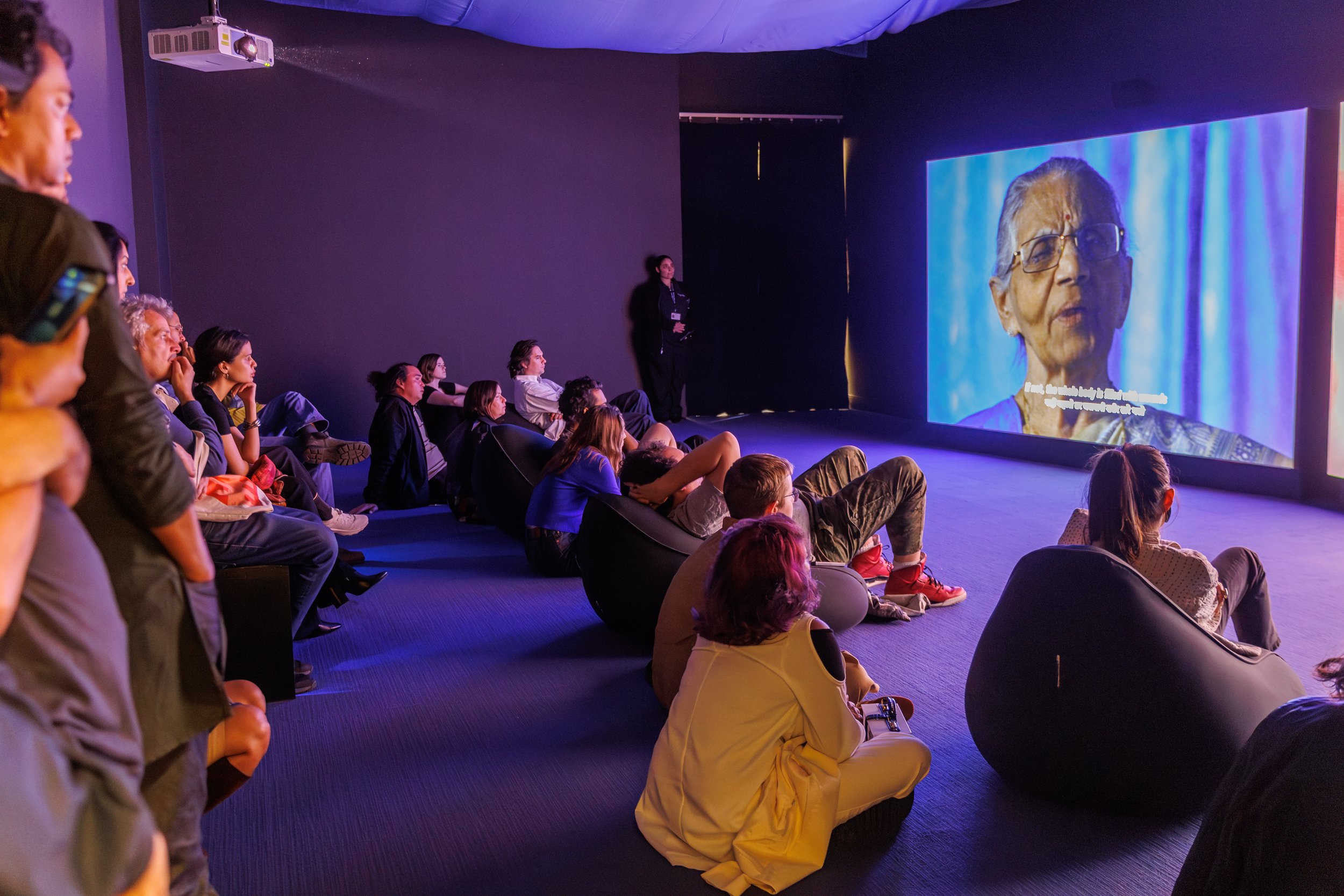

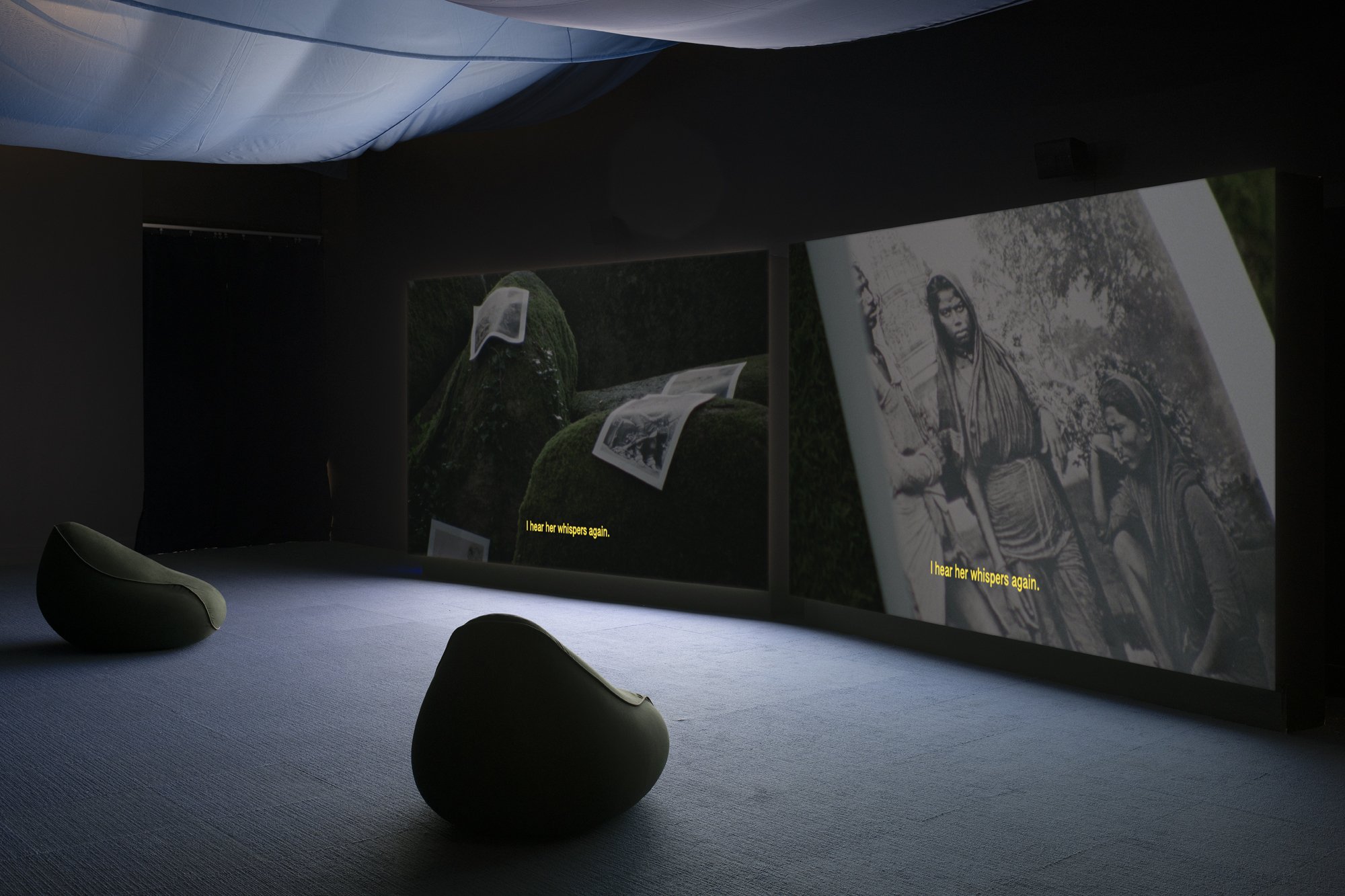
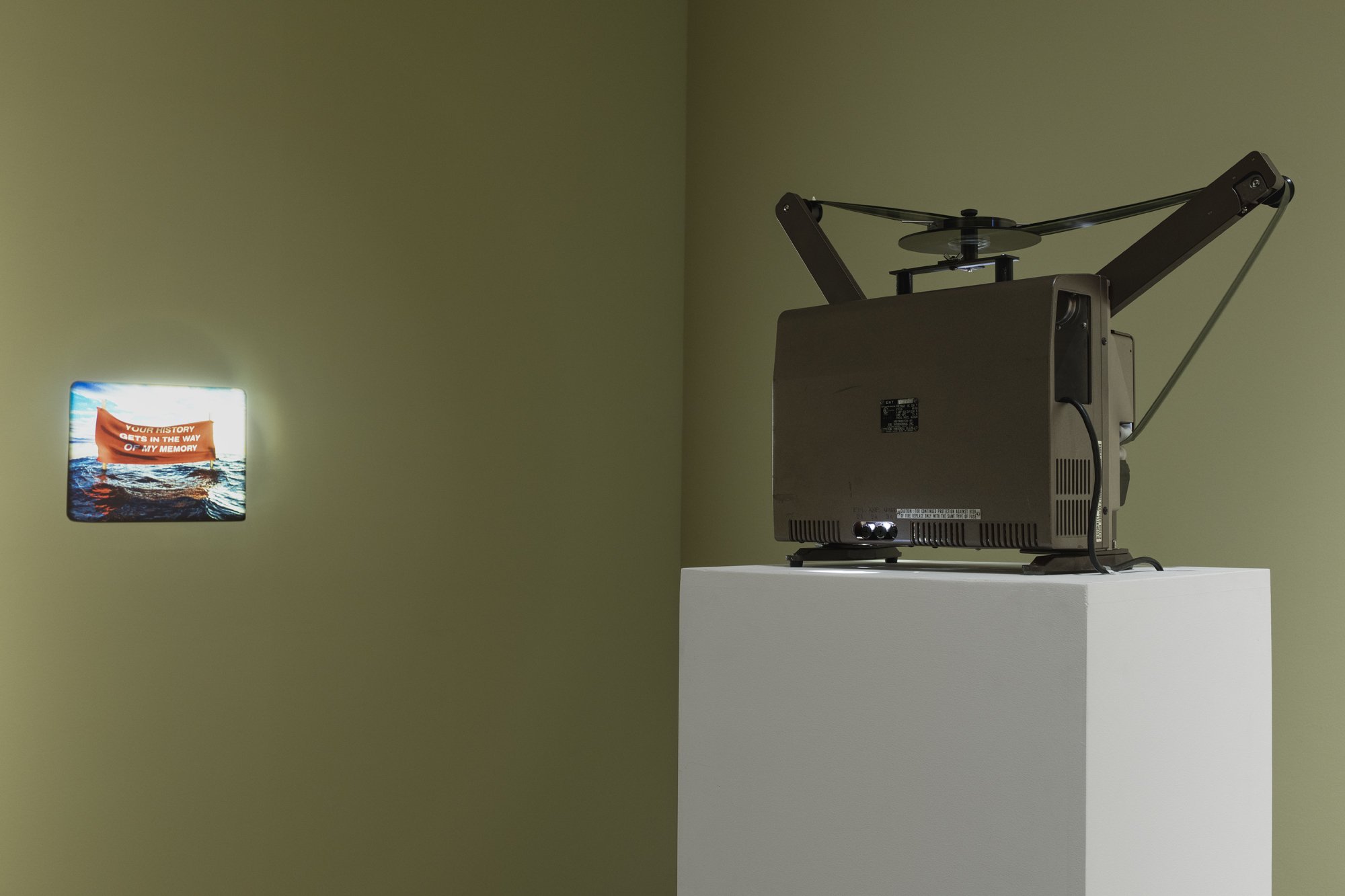
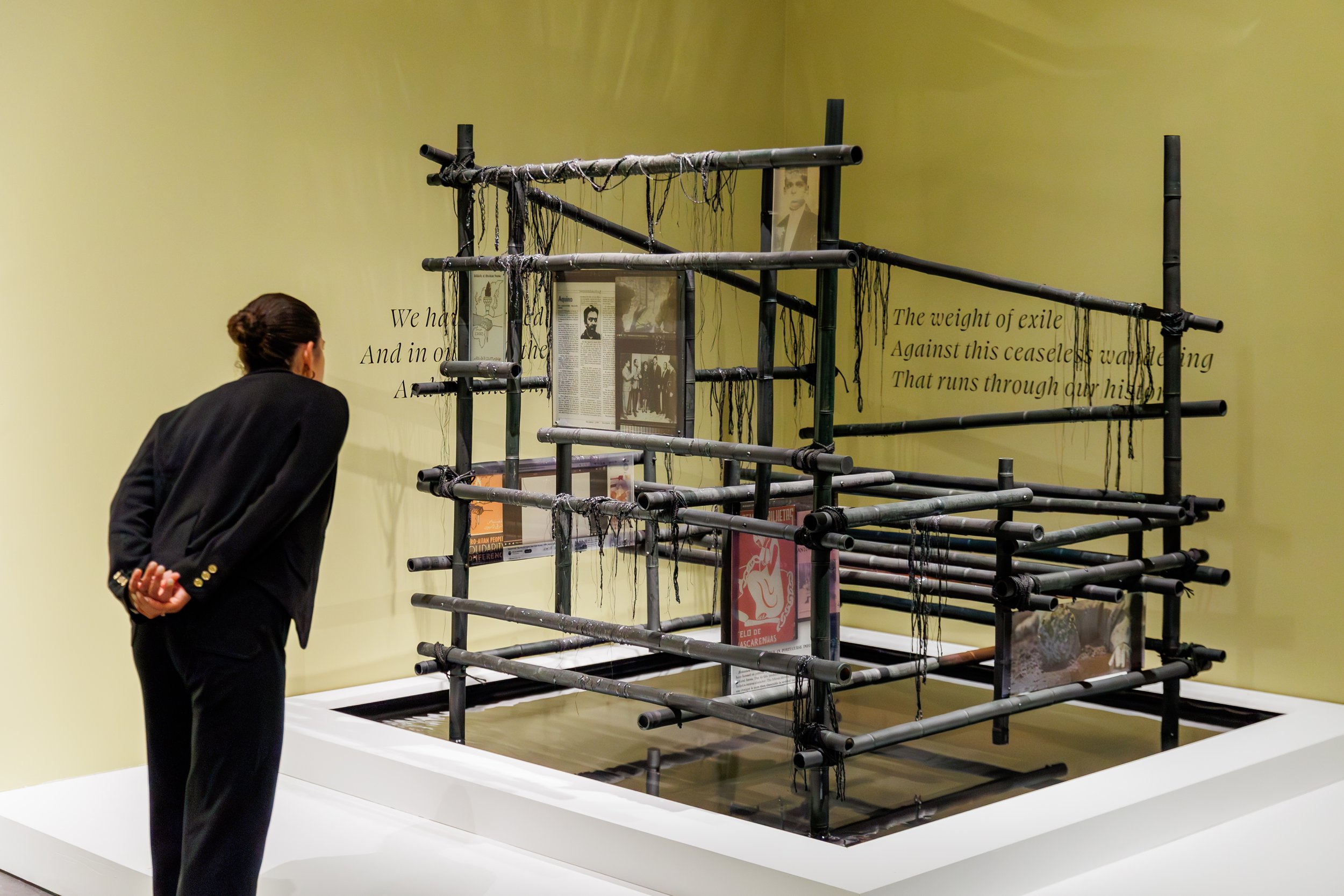
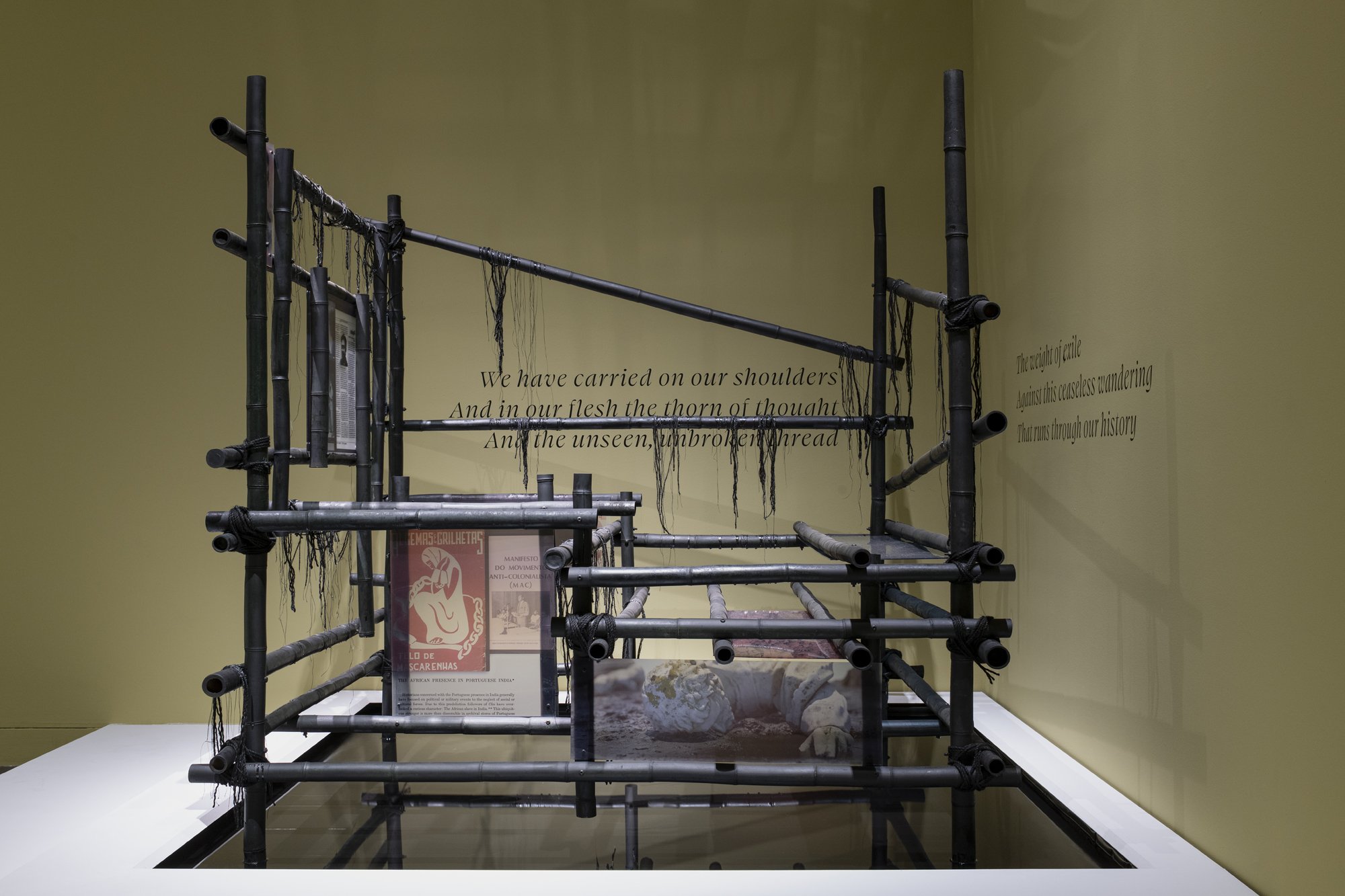
Description:
In 1961, 14 years after India gained independence from the British, the Indian Armed Forces defeated the last remaining Portuguese colonizers in the newly formed state of Goa. My father was 18 at the time, and had just moved away from his small village of Curchorem to Bombay for school when news reached him about his home—now free from the oppression of a foreign hand after 450 years of colonial rule. After spending years thinking about questions of identity, liberation, and the movement of people across space and time, I find myself returning to this period in search of moments of anti-colonial solidarity across continents. My research took me from the shores of Goa, to Indonesia, Mozambique, and Angola, finding brief links between nascent liberation movements and my father’s biography.
Combining 16mm footage with drone videography, montages from the "Parallel cinema" movement in India, desktop screengrabs, and Skype interviews with my father, the resulting film utilizes various methods and modes of seeing at a distance to question the construction of artifice, memory, and identity through the moving image.
At Home But Not At Home,
2020, 11’
Selected Press:
“Sanzgiri unearths images that describe the slender threads tying potential locations of resistance across the Indian Ocean. His efforts provide a way to counter the colonial employment of disparate populations in military adventures to maintain their regimes of power and control.”
“Sanzgiri has developed an experimental film practice concerned with the ethics of mediating lived history, specifically anticolonialism in South Asia and its resonance in the present. To begin this journey, the artist started at home, drawing from stories related to him by his father. Shashi Sanzgiri was raised in colonial Goa, where as a child he witnessed India’s 1947 independence and partition. As Shashi explains in At Home But Not at Home (2019), these world historical events came alive through personal experience: Gandhi’s assassination in 1948, for instance, remains vivid in his memory because a cousin organized a memorial procession in their village. Such recollections are representative of Sanzgiri’s treatment of history, which repeatedly telescopes from the familial to the realm of epic national and international struggle.”
Description:
Shot with 16mm film stock that expired in 2002—the same year as the state-sponsored anti-Muslim genocide in Gujarat—and filmed amid the anti-CAA protests in Delhi, the filmmaker traces lines and lineages of ancestral memory, poetry, history, songs, and ruins from his birth in 1989.
A search for solidarity in the sounds and colors of the spontaneous Muslim women led Shaheen Bagh movement in Delhi, in the poetry of Agha Shahid Ali, the song of Iqbal Bano, the theater of Safdar Hashmi, and images of B. R. Ambedkar—the radical anti-caste Dalit intellectual and founder of the Indian constitution—all surrounding a letter addressed to the filmmaker’s distant relative Prabhakar Sanzgiri, who wrote biographies of Ambedkar and was a Communist Party of India (Marxist) leader in Maharashtra.
Letter From Your Far-off Country is the second film a series of new works addressing ancestral memory, diaspora, history, decoloniality, and cross-continental solidarity. These themes, which run recurrent, think through a series of questions, reflections, and intimations of how we live through moments of trauma, violence, and revolt.
Starting with At Home But Not At Home (2019), which made its world premiere at the International Film Festival Rotterdam in January 2020 with a nomination for the Found Footage Award, Letter From Your Far-off Country continues interviews with the filmmaker's father, while blurring boundaries of the epistolary format through a letter written by the filmmaker directed towards a distant relative, who was a revolutionary freedom fighter, prisoner's rights activist, and Communist party leader.
Using the language of new media, video art, desktop cinema, and experimental film, these shorts look towards the slippery, unstable, and liberatory possibilities of the moving image, seeking to reclaim the past from erasure, and provide a journey towards a potential future.
Letter From Your Far-off Country,
17’, 2020
Selected Press:
"Drawing upon a rich repository of images – from digital renderings of Kashmir’s mountains to the textured materiality of 16mm hand-processing and direct animations techniques – 'Letter From Your Far-off Country' maps a hidden vein of shared political commitment and diasporic creative expression, linking a poem by the Kashmiri American writer Agha Shahid Ali with interviews with the filmmaker’s father and a letter addressed to Communist Party leader Prabhakar Sanzgiri, who is also the filmmaker’s distant relative."
- New York Film Festival
“Although Letter never mentions Narendra Modi by name (it doesn't have to), its brief but complex genealogy of dissent is positioned against the 2019 Citizenship Amendment Act. Although one would certainly appreciate seeing Sanzgiri articulate these various ideas at more length, Letter provides a visceral portrait of the race of thoughts one experiences when in the throes of rising tyranny.”- Michael Sicinski, Mubi Notebook
“Every image has a political dimension, and a spiritual dimension, and Sanzgiri seems to force both to the surface at once… Ultimately, Letter From Your Far-Off Country is a haunting entry into India’s parallel wave of experimental cinema. It is, at once, a rousing oral reminder of a history to which we all belong, and a visual conjuring of that history through mutated and manipulated moving images, as if the new norms that surround us have been turned inside-out, forcing us to examine their every facet.”- Siddhant Adlakha, First Post
Description:
What is liberation when so much has already been taken? Who has come for more? "Golden Jubilee", the third film in a series of works about memory, diaspora and decoloniality, takes as its starting point scenes of the filmmaker’s father navigating a virtual rendering of their ancestral home in Goa, India, created using the same technologies of surveillance that mining companies use to map locations for iron ore in the region. A tool for extraction and exploitation becomes a method for preservation.
The father, sparked by a memory of an encounter as a child, inhabits the voice of a spirit known locally as Devchar, whose task is to protect the workers, farmers, and the once communal lands of Goa. Protection from what the filmmaker asks? Sanzgiri’s signature blend of 16mm sequences, 3D renders, direct animation, and desktop aesthetics are vividly employed in this lush, and ghostly look at questions of heritage, culture, and the remnants of history.
Golden Jubilee,
19’, 2021
Selected Press:
“Suneil Sanzgiri’s Golden Jubilee (2021) is an abstract study of anti-colonial liberation struggles in Goa, India. It offers a sonic and visual journey through family history, local mythology, and the extractive legacy of the region. In the artist’s distinct aesthetic mode, the fragment is one articulation of the stakes in diasporic filmmaking—a storying with rather than against incoherence and incongruity that allows us to question how we might conjure (and possibly recoup) histories without futures, with a generosity of mind and spirit.”
“In Golden Jubilee (2021), Sanzgiri’s most recent short film, the artist recreates his father’s childhood experience with a local protective spirit named Devchar. Father and son reenact this encounter by navigating through a virtual rendering of Shahi’s ancestral home. This reimagined space was created with the same technology that pollutive mining companies in Goa use to map iron mines. Pixelated and translucent, the home undulates as the story unfolds, taking on a ghostlike quality as it is transformed from an architectural structure into a site for memory. In this instance, Sanzgiri adopts the glitch as a point of view. In doing so, he subverts the original extractive intent of this commercial technology and its contributions to the exploitation of Goan land and resources, using it instead as a tool for ancestral preservation.”
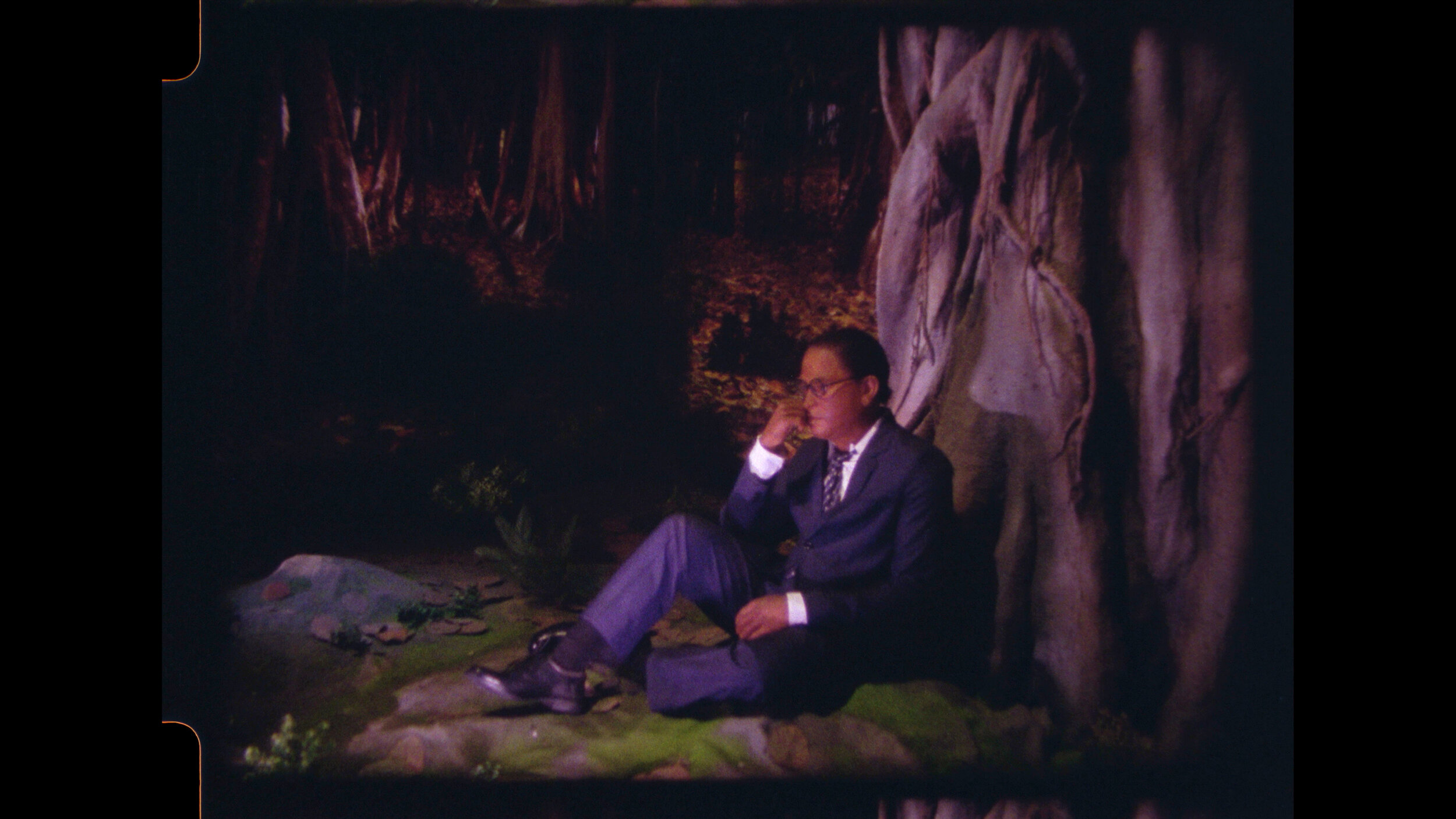
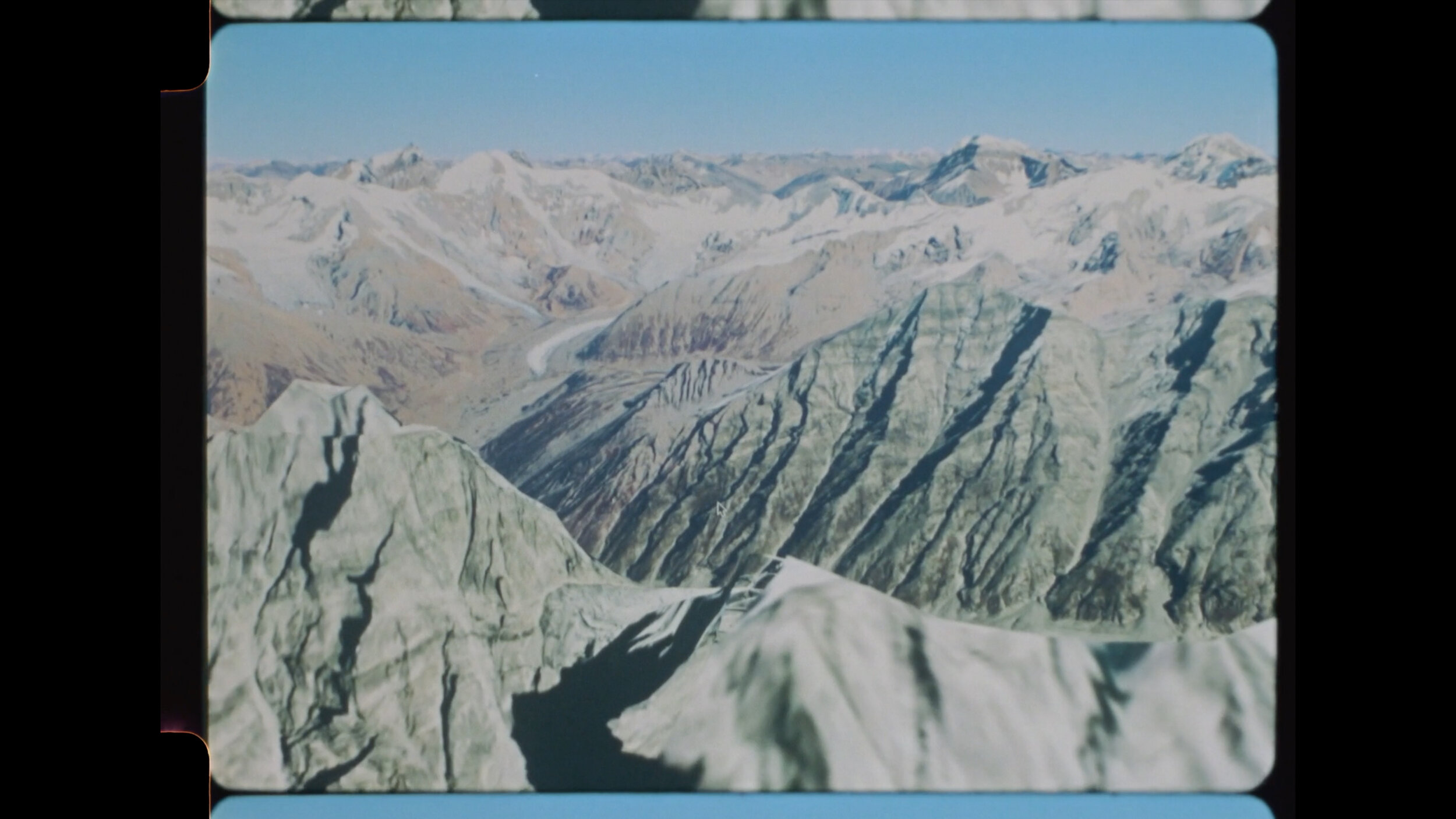
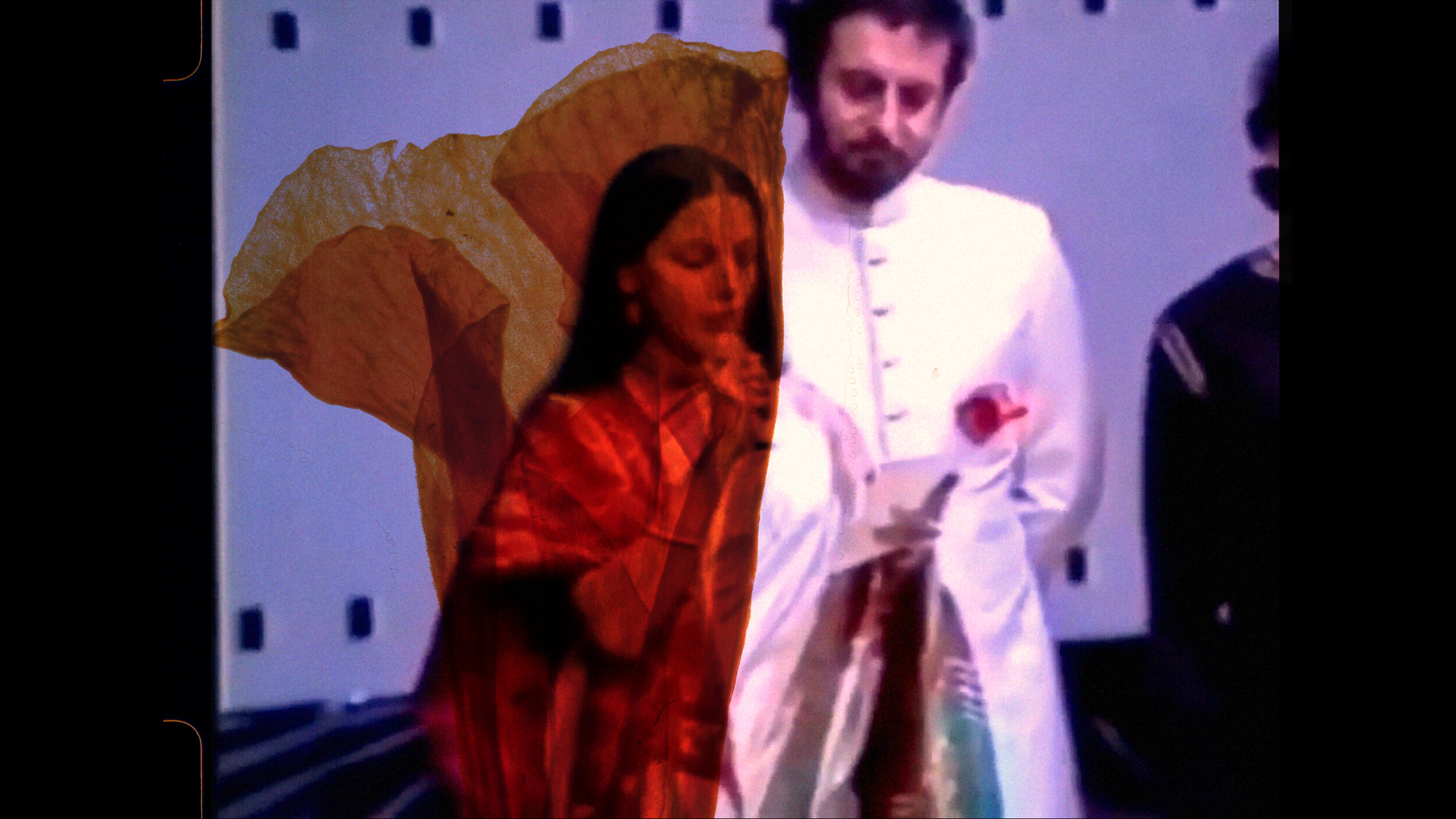
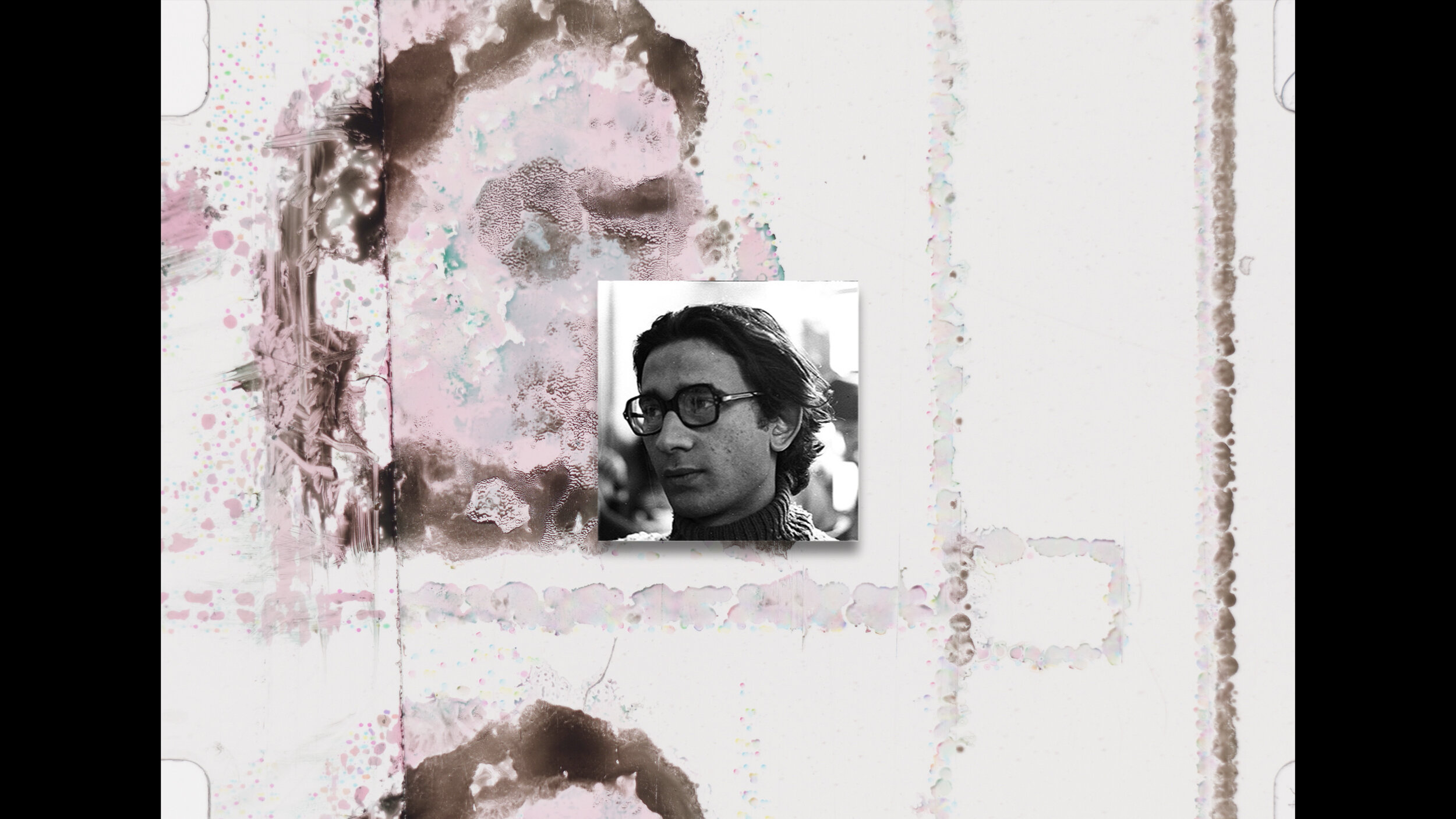
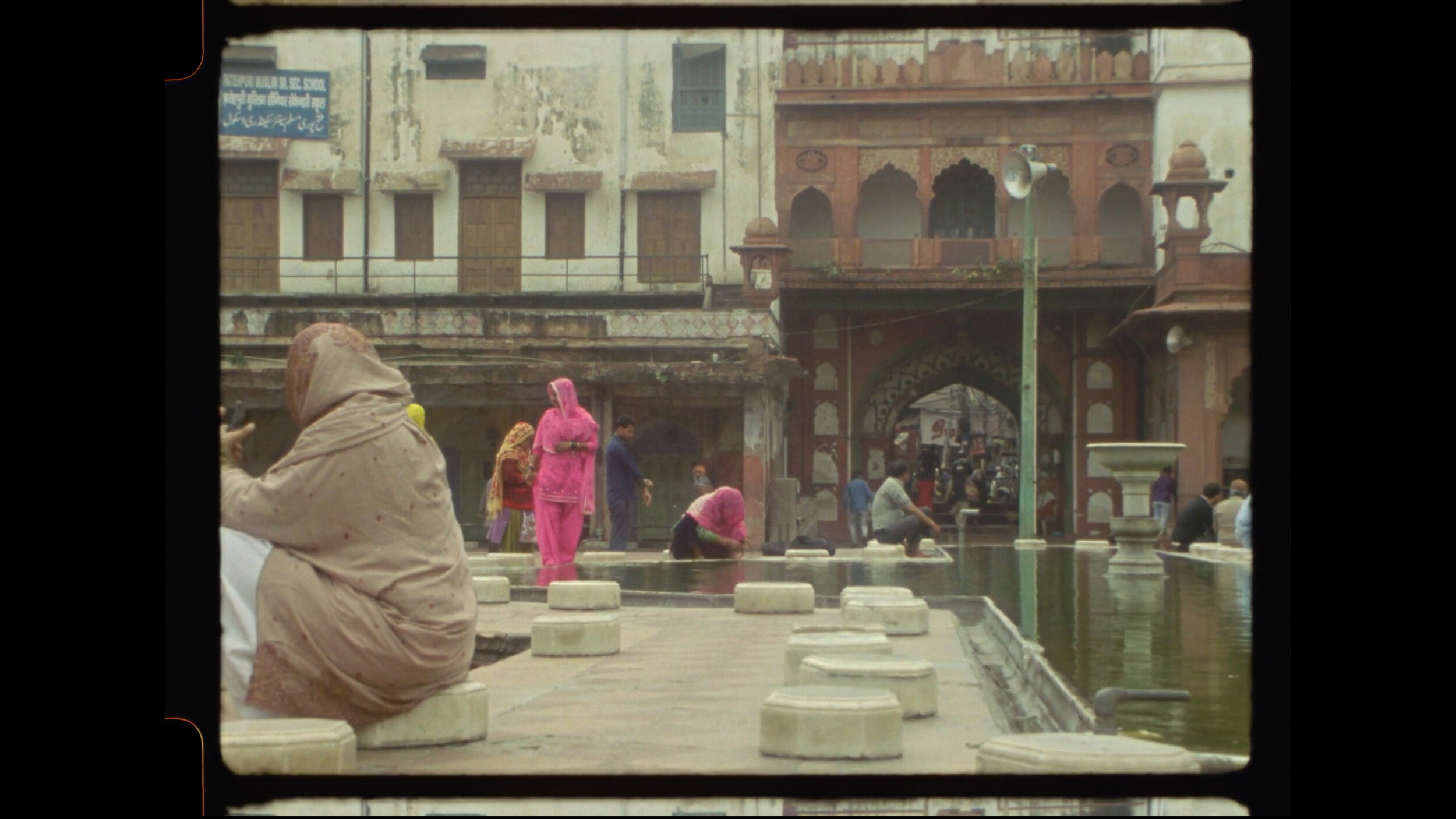
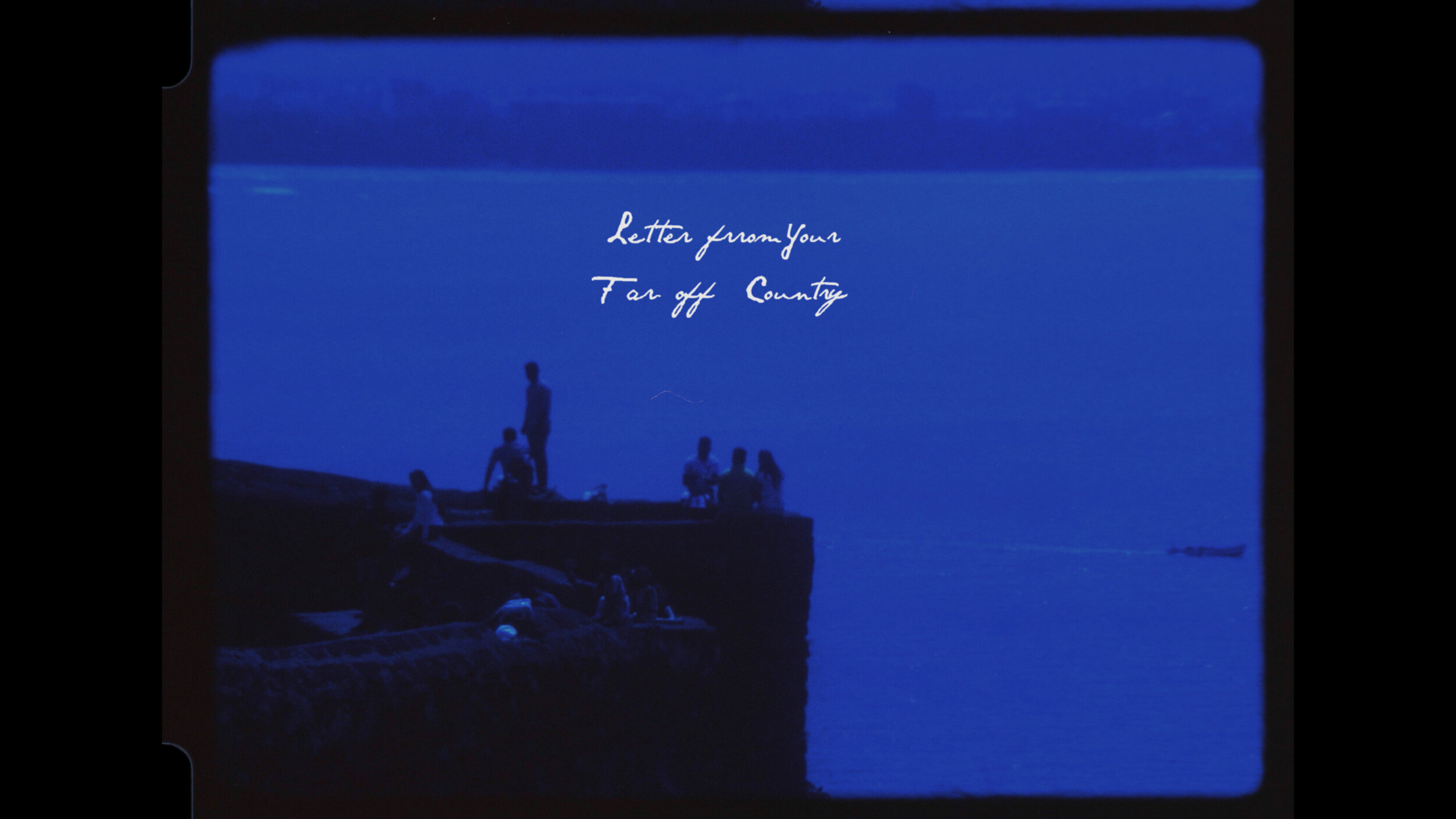
About
Suneil Sanzgiri is an artist, researcher, and filmmaker. His work spans experimental video and film, animations, essays, and installations, and contends with questions of identity, heritage, culture and diaspora in relation to structural violence. He graduated from the Massachusetts Institute of Technology (MIT) with a Masters of Science in Art, Culture and Technology in 2017.
His film "At Home But Not At Home" made its World Premiere at the International Film Festival Rotterdam, in January 2020, with a nomination for the Found Footage Award. His follow-up film "Letter From Your Far-Off Country" made its world premiere at the New York Film Festival in the fall of 2020, and was entered into the Ammodo Tiger Shorts Competition at IFFR in 2021. Sanzgiri’s work has been screened extensively at festivals and venues around the world including International Film Festival Rotterdam, New York Film Festival, Hong Kong International Film Fest, Sheffield Doc/Fest, Doc Lisboa, Viennale, e-Flux, REDCAT, the Menil Collection, Mass MoCA, Cleveland MoCA, the Block Museum, and the Criterion Collection, and has won awards at BlackStar Film Fest, Open City Docs Fest, and more. Residencies and fellowships include SOMA, MacDowell, Pioneer Works, Flaherty NYC, and Sentient Art Film's inaugural Line of Sight fellowship. His work has been supported by grants from Creative Capital, the Jerome Foundation, NYSCA, Field of Vision, Wave Farm, and the Foundation for Contemporary Art. He was named one of the “25 New Faces of Independent Film” in Filmmaker Magazine’s Fall 2021 Issue, and in Art in America's "New Talent" issue in 2022.
Sanzgiri is currently working on his first feature-length work, focusing on the bonds of solidarity that developed out of resistance to the Portuguese empire between India and Africa. He is the 4th recipient of the UOVO Prize and will have his first institutional solo show at the Brooklyn Museum in Fall 2023.
“At Home But Not At Home” (2019)
How is identity constructed when diaspora is at a distance? When can a mythology begin to be deconstructed? Combining 16mm footage with drone videography, montages from the "Parallel cinema" movement in India, desktop screengrabs, and Skype interviews with my father about growing up under Portuguese colonialism in Goa, this film interweaves questions of identity, cinema, and liberation.
“Letter From Your Far-Off Country” (2020)
A search for solidarity in the sounds and colors of the spontaneous Muslim women led Shaheen Bagh movement in Delhi, in the poetry of Agha Shahid Ali, the song of Iqbal Bano, the theater of Safdar Hashmi, and images of B. R. Ambedkar—the radical anti-caste Dalit intellectual and founder of the Indian constitution—all surrounding a letter addressed to the filmmaker’s distant relative Prabhakar Sanzgiri, who wrote biographies of Ambedkar and was a Communist Party of India (Marxist) leader in Maharashtra.
“Golden Jubilee” (2021)
What is liberation when so much has already been taken? Who has come for more? “Golden Jubilee”, the third film in a series of works about memory, diaspora and decoloniality, takes as its starting point scenes of the filmmaker’s father navigating a virtual rendering of their ancestral home in Goa, India, created using the same technologies of surveillance that mining companies use to map locations for iron ore in the region. A tool for extraction and exploitation becomes a method for preservation. The father, sparked by a memory of an encounter as a child, inhabits the voice of a spirit known locally as Devchar, whose task is to protect the workers, farmers, and the once communal lands of Goa. Protection from what the filmmaker asks?





